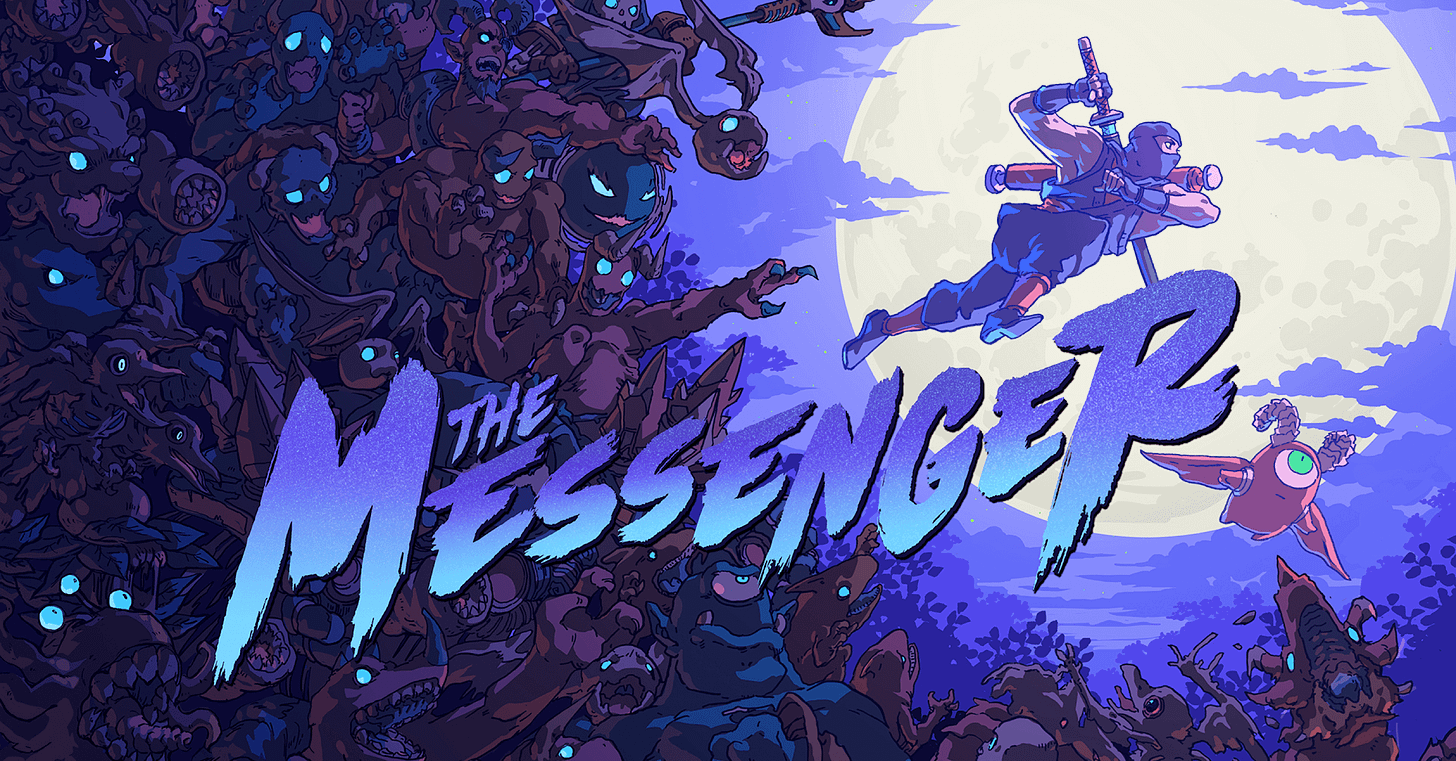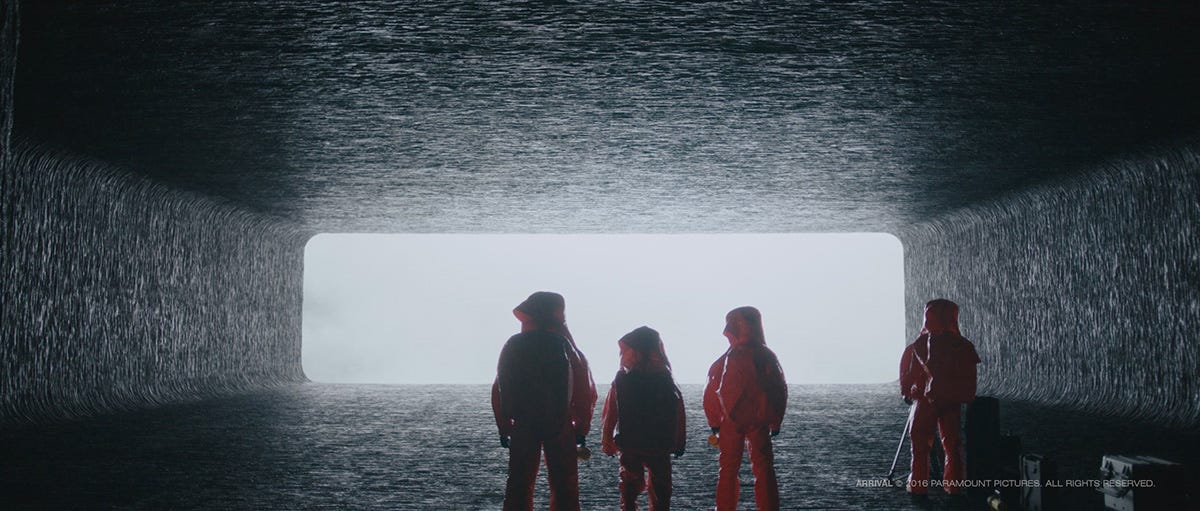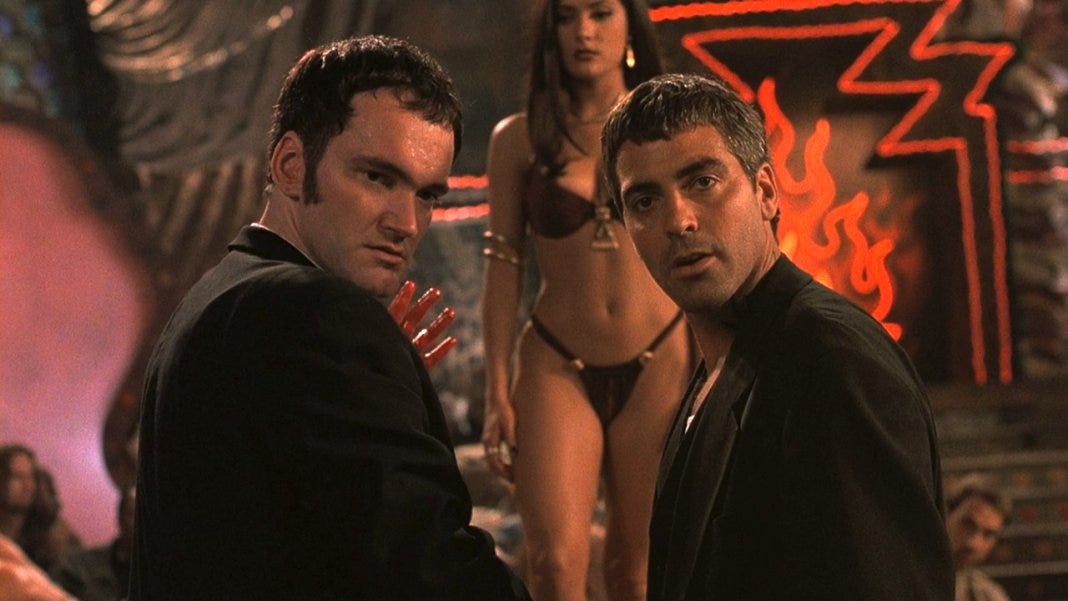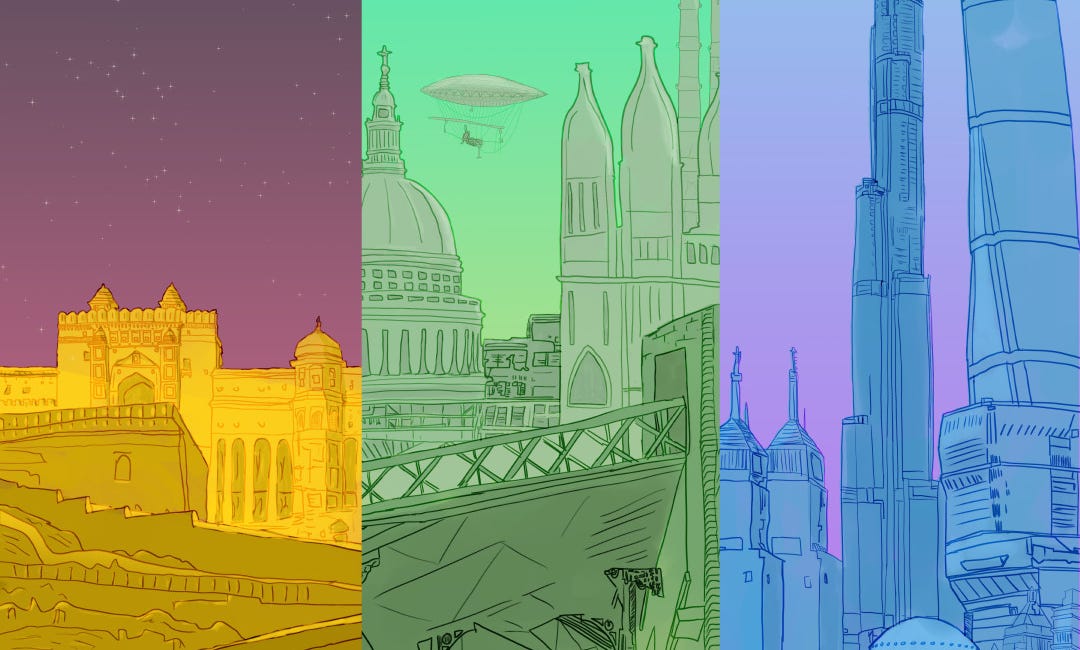Storytelling often leans heavily on formula and expectation. Language itself is rules-based, after all, and breaking too many of those rules can make a text difficult for readers.
Beyond core grammatical syntax, rules exist the moment you dip a toe into genre. If you’re reading horror, or science fiction, or romance, there are templates that are immediately being applied by both the writer and the reader. A romance novel expects a relationship to form between the protagonists. Crime fiction expects criminality. There’s enormous flex within genre spaces, of course — fantasy does not have to include magic (but probably will) and science fiction does not have to include spaceships (but probably will) — and often the most influential stories are the ones that dare to play with the formulas. Subverting expectations is a risky business but brings with it serious rewards.
An aspect of subversion that I especially enjoy is when you think a story is one thing, and then it turns out to be something else entirely. It’s a topic that has been on my mind recently, as I’ve been trying to pull off this exact trick in Tales from the Triverse, my ongoing serial.
Attempting such sleight of hand made me want to go back and look at examples in literature, cinema and gaming that have done just that. I threw it out to the writing community, as I knew you lot would come up with great examples, and wasn’t disappointed.
There will, inevitably, be spoilers below for the selected examples, so skip over any where you don’t want to know the details.
My go-to example, the one that opened my mind up in the first place as a teenager, is, of course:
Babylon 5
This 90s TV show was the one that wasn’t Star Trek. As such it always remained somewhat under the radar, existing in a strange position of being both highly influential and relatively unknown.
Set on an human-run space station several hundred years into the future, it starts with a classical, episodic structure: A confined space, with a new problem to solve each week, and a core cast of problem-solvers. It’s not dissimilar to a procedural cop show, with a new case each week, and a focus on a particular city district. A murder here, a dock workers’ strike there, an alien infestation another week.
This is the status quo for its first two seasons. It’s not until the third season that the table is flipped over: the space station secedes from the Earth government, galactic war is declared and the action is no longer confined to the station. The show shifts from a ‘thing of the week’ sci-fi show into a novelistic epic saga. Structurally, episodes run together into an ongoing narrative that is much closer to the serial TV of the 2020s.
Galileo’s Dream
Kim Stanley Robinson is known for his highly detailed hard sci-fi novels. I first encountered his work with Red Mars and its sequels, which left me feeling as if I’d personally stepped foot on another planet.
Galileo’s Dream is a historical novel about the famed scientist and his persecution at the hands of the church. That’s until it unexpectedly shifts into a science fantasy novel, with Galileo travelling to the far future and romping about on the moons of Jupiter. The book treads a clever line, never entirely clear about what is really happening and what is in Galileo’s imagination.
Aside from the genre twist, it also pulls off a clever narrative perspective twist. Told in a fairly standard third person, it’s not until a third of the way in that a casual and unexpected ‘we’ is dropped into the text. Turns out it’s a first person account of Galileo’s life, told by an observer.
None of this feels like a cheap ‘twist’. It’s thematically linked into the notion of imagination and progress, and is rooted in the portrayal of Galileo’s character. It’s fascinating and very clever, and made me feel very inadequate as a writer.
The Messenger
Sabotage Studios hit the big time last year with Sea of Stars, a gorgeous semi-retro RPG that I absolutely devoured. Prior to that they’d released The Messenger, a love letter to 1980s side-scrolling action games like Ninja Gaiden.
It starts with an authentic 8-bit visual and audio style, and for the first half of the game you’re engaged in a linear, left-to-right action adventure, jumping and slicing your way through the levels. At the halfway point, when the game appears to be reaching its climax, it unexpectedly shifts into a Metroidvania style game, with an emphasis on exploration and revisiting the areas you’ve already been through.
This one is interesting to me, because the shift isn’t just in the story but in the fundamentals of the game. It’s a bigger change than, say, changing genres in a book. The things you do and the way you do them is altered — more like if a book suddenly became a comic, or a movie.
Arrival
Seriously, if you haven’t seen this yet, go watch it. Don’t spoil it for yourself!
There are few films that so utterly upend themselves as Arrival. For almost its entire story, it appears to be a very good but fairly typical science fiction tale, exploring how we might handle the arrival of aliens on Earth. It’s grounded and takes a realistic approach to how governments and scientists might react.
At the same time we get to know the lead characters, including linguistics expert Louise, who is grieving the loss of her daughter. The character work is as good as the big sci-fi concepts, and if that was the entirety of the film it would likely still be considered a classic.
There’s a flipping of the table near the end of the film, when we realise that Louise has acquired the ability to perceive time in a non-linear fashion, thanks to her conversing with the aliens and learning their language. The ‘memories’ of her daughter are in fact events yet to occur. That she chooses to embrace the future, despite being aware of inevitable tragedy, is the core of the film.
This is less of a twist and more of a re-contextualising. The entire film shifts in the viewer’s memory, much like Louise’s own transformation. The end result is quietly transcendental, in the way that Denis Villeneuve is especially good at.
Fight Club
This one was suggested by
:Fight Club was for a long while my favourite film of all time. It might still be, though I haven’t watched it in over a decade. Much like Arrival, this is less of a ‘shock twist!’ and more of a shift of context. The realisation that the Narrator and Tyler Durden are one and the same lifts the entire character study to a new level.
That’s why I chose not to include The Sixth Sense here: while it’s an effective film, the twist ending doesn’t really change or elevate the story. It’s an ‘a-ha!’ moment, but we already knew it was a ghost story. It already had the trappings of genre, with the twist adding a clever extra detail, rather than fully reinventing itself.
Attack on Titan
Thanks to
for this one:I binge-read the manga last year and was repeatedly knocked sideways by the evolving story. It recontextualises itself over and over again, in ways that shift its genre, themes, character motivations and story beats. It’s a story built on shifting sands, and for me became an examination of propaganda, and the dangers of miscommunication and limited information sharing.
I’m still unsure about it’s final act. It’s challenging and subverts expectations one final time, and I can’t quite decide if it’s genius or a last-minute mis-step.
From Dusk Till Dawn
This was from
:It is indeed an obvious one. This is perhaps the most extreme genre shift of all the examples, shifting from a crime/heist caper into a full-on vampire horror. It didn’t occur to me, partly because I didn’t see it on release and therefore always knew about its true nature.
That’s the big problem with this kind of story: how do you promote it? If you don’t reveal the subterfuge, it’s possible that a core part of your audience will never discover the story. If you do reveal it, the impact of the rug pulls are going to be ruined. Clearly in the 90s the trailer editors didn’t care about the integrity of the film:
Tales from the Triverse
Yes, this is the point at which I sneakily and indulgently mention my own book. I’m not going to apologise (sorry).
For the last three years, Triverse has been primarily a police procedural. Each episode is a ‘case’, which is investigated by the lead detective characters. The stories behind each case are a way to examine a theme or issue through the sci-fi-fantasy lens: people trafficking, immigration, populism, police profiling, propaganda etc. It’s been very episodic, presented as an anthology series that readers can dip in and out of.
In the background there’s been an ongoing larger plot, bubbling away and building momentum. Over the summer we hit a critical point in that larger story, which torpedoed the entire framework of the series. The detectives have been framed and are on the run, there’s no ‘police work’ left to do, the team is split up and everything’s a mess. From here on out, the story is going to be about what happens next, and it won’t have the same case-by-case procedural structure that’s been the series staple.
It’s a signal that we’ve entered the final stretch: we’re on the downward bit of the rollercoaster, having crawled our way to the top. It’s a tricky thing, though, and I’ve been nervous about it: if readers were really enjoying the 1970s-cop-show-but-in-Middle-Earth vibe of the series, they might not get on with the more overt adventure hijinks that we’re now getting into.
We’ll see! I’m hoping that the strength of the characters and themes act as a through-line, so that even as the narrative framework shifts and reconfigures, there’ll be those common elements. Ultimately, it’s about the people in the story, rather than simply being about their day jobs.
If any of that sounds intriguing, you can read it for free:
Start reading here
Portals have opened in London, connecting Earth to a far future version of itself and a fantastical land where magic is real. As society adjusts to the new status quo, a specialist division of the police is established to handle the growing number of portal crimes.
OK, now it’s your turn!
I want to know what your favourite examples are of films/books/TV shows/comics/games/etc which completely tricked you into thinking they were one thing, when in fact they are something else entirely.
I’ll see you down in the comments. Here are more great examples that people sent in:
Meanwhile.
Last week I was absurdly ill. What started off as a mild cold developed into a weird semi-migraine, 100% brain fog thing that knocked me out for days. I had several days off work, but couldn’t even relax with a movie or a game: this was full-on stupor, and all I could manage was dribbling insensibly on the sofa. It even meant that I missed my Triverse chapter for the week, something which hasn’t happened for literally years.
Most annoying.
I’m better now, mostly, but it certainly knocked the wind out of me. Fortunately, I was just about well enough to take the boy to see Transformers One at the weekend. As with the 1986 movie, it’s far better than it needs to be, put together by a creative team that clearly care about what they were doing. It will wipe from your mind all memory of the awful live action Bayhem slop.
My brain was also working at a sufficient speed (I think) to manage a podcast interview chat with
this morning. Look at my ghostly “I’ve been quite ill” face on the left here:It was a good conversation, hopefully packed full of interesting chatter about writing serial fiction. I think it’ll be going up on David’s podcast in the next week-or-two.
We actually touched upon some similar concepts to those discussed by
and in their recent livestream, which is worth a watch:Tech companies and the leaders of tech companies have lost so much trust over the last decade that I find it difficult to listen to Hamish and Chris talk about their intentions and believe them. Which is unfair on them, but still. Online platforms and tech is a toxic space, built on the worst tendencies of capitalism and narcissism. When people come along and say All The Right Things, I can’t help but be a cynic.
But, wow, I hope they mean what they say, and that they get to continue to explore their ideas.
Last thing: I finally got around to listening to Naomi Alderman’s The Third Information Crisis on BBC Sounds. It’s very succinct and very excellent. If you’re in the UK you can listen to it here — I’m not sure how BBC content works in other countries, but do try to hunt it down. It’s about how the internet has pulled us into an information crisis, looks back at how these have gone down in history (spoiler: very badly at first, then really good), and what we might expect next.
Right, the lingering remnants of this bug are still leaving me feeling a bit knackered, so I’ll sign off there. See you on Friday for more Triverse.















Wow! This is a really nice collection of examples. Thank you for the shoutout!
I wish I had mentioned 'Pirates of the Caribbean: Curse of the Black Pearl.'
That first movie repeatedly recontextualizes itself and subverts expectations, most notably by creating the impression that it's really a classic historical adventure movie before revealing itself to be a fantasy/horror film an hour into the running time.
Well, I guess you're the exception that proves the rule on the current dogma that anyone whose favorite film is "Fight Club" is an incel asshole.
"Psycho" is another genre twister.
I'm going to toss out most of writings of HP Lovecraft. While noted as a "horror" writer, he is, in fact, writing science fiction. All the entities of the Cthulhu Mythos use technology (like the Yith using time travel to find where in their future move their species to avoid catastrophic climate change, or the Mi-Go attempting to learn about humans by sticking brains in life support jars and interrogating those minds on Pluto), and "non-Euclidean mathematics" (every other story). While the stories have the trappings of horror, that's the viewpoint of the protagonists, who are incapable of comprehending the high science in use, and cannot accept alien lifeforms going about their own business while not giving one damn about humanity. The "horror" comes from the premise that humans aren't special. The mechanics of the universe are sci-fi from the viewpoint of characters who don't know what genre they're in.
There are exceptions in Lovecraft - "The Dream Quest of Unknown Kadath" is pure fantasy, and Lovecraft's ghouls certainly seem magical, but these seeming exceptions may be the fault of me as commentator.
"The Thirteenth Floor" is another example. It begins as a 1940's noir-thriller, and ends in a similar setup as "The Matrix." "Matrix" was released several months AFTER "The Thirteenth Floor," and is actually a better movie. It was just low key and contemplative instead of featuring ridiculous violence and extensive special effects.
"The Matrix" itself tries to pull a genre switch, but they twist was spoiled in the initial ad campaign ("The Matrix" also had "bullet time" coined to name a visual effect which had already been used for YEARS in Hollywood projects, and, for which, the base technique dates back to the 1880s - which I mention as a grumpy pedant). Of course, "The Matrix" pops back here because it's only recently been made explicit that the movie is REALLY about coming to the realization of one's transgender nature and beginning a transition.
I've got other examples, but I've taken enough of your time.
Glad your feeling better. Unfortunately, whatever hit you seems to have worked through Laura and now me. I spent the weekend cursing the donkey kicking the back of my left eye to a double-bass speed-metal backbeat.